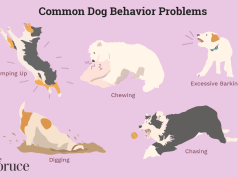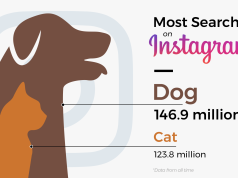Consider your lifestyle, time, and financial commitment before adopting a dog. Ensure you can provide a stable, loving home.
Adopting a dog is a rewarding experience that brings joy and companionship. Before taking this step, evaluate if your lifestyle can accommodate a pet. Dogs require time, attention, and regular exercise. Financially, consider costs like food, vet bills, and grooming.
Table of Contents
Assess your living situation; ensure your home is dog-friendly and your yard is secure. Research different breeds to find one that matches your activity level and living space. Commitment is crucial, as dogs can live for 10-15 years. Ensure all family members are on board and ready for the responsibilities. Proper planning and consideration make the adoption experience smooth and fulfilling for both you and your new furry friend.

Credit: www.four-paws.org
Lifestyle Assessment
Think about how much time you have each day. Dogs need regular walks and playtime. Some breeds require more exercise than others. Busy schedules might not suit active dogs. Consider if you can feed and care for a dog daily. Dogs need attention and companionship. If you travel often, a dog may feel lonely. Make sure your routine can fit a dog’s needs.
Different dogs have different energy levels. Some dogs love to run and play. Others are more relaxed and calm. Match your activity level with the dog’s needs. Active people might enjoy a high-energy dog. Less active people might prefer a low-energy dog. Make sure the dog’s energy fits your lifestyle. This helps keep both you and your dog happy.
Financial Commitment
Adopting a dog involves initial costs. These include the adoption fee, which varies by shelter. You also need to buy basic supplies like a bed, food bowls, and toys. Vaccinations, spaying or neutering, and microchipping add to these costs. A first visit to the vet is also important.
Dogs need regular food. This can be dry food, wet food, or a mix. Routine vet visits are essential for keeping your dog healthy. Grooming is another expense, especially for long-haired breeds. Pet insurance can help manage unexpected medical costs. Dogs also need toys and treats to stay happy. Training classes might be necessary for behavior management.
Time Commitment
Training a dog takes a lot of time. Puppies need extra attention and patience. Older dogs might have habits you need to change. Daily sessions help your dog learn faster. Short and fun training is best. Rewards make training enjoyable for dogs. Consistency is key for good results.
Dogs need regular exercise to stay healthy. Some breeds need more activity than others. Walks, runs, and playtime are important. Exercise helps burn energy and keeps dogs happy. Lack of exercise can lead to behavior problems. Make sure you have time for daily activities. Your dog will love you for it.
Living Space
Your home size affects your dog’s comfort. Small apartments may suit small dogs better. Big dogs need more room to move. Space should allow for a comfy bed and play area. Consider your dog’s energy level too. High-energy dogs need more space to run.
Outdoor access is crucial for a dog’s well-being. A yard is ideal for daily exercise. If you lack a yard, nearby parks are a good alternative. Regular walks are important for all dogs. Outdoor time helps dogs burn energy and stay healthy.
Family Considerations
Dogs and children can be great friends. Make sure your kids are ready for a pet. Teach them to be gentle and kind. Some dogs are better with children than others. Research breeds that are good with kids. Puppies need lots of attention and training. Older dogs might be calmer and more patient.
Think about your current pets. Will they get along with a new dog? Some dogs are friendly with other animals. Others might be territorial. Introduce new pets slowly and carefully. Watch their reactions and interactions. Keep them separated if needed. Use baby gates or crates for safety.

Credit: www.hartz.com
Breed Selection
Dogs come in many sizes. Small dogs are great for apartments. Big dogs need more space. Temperament is also important. Some dogs are very active. Others are calm and relaxed. Always choose a dog that matches your lifestyle. A good match makes everyone happy.
Different breeds have different health issues. Some dogs may have heart problems. Others might have joint issues. Regular vet visits are important. Healthy dogs live longer and happier lives. Research your chosen breed’s health problems. Be prepared for any issues.
Adoption Process
Shelters often have dogs needing homes. Breeders offer specific breeds of dogs. Both options have pros and cons. Shelters might have mixed breeds. Breeders usually have purebreds. Shelters may be cheaper. Breeders might charge more. Shelters often include vaccinations and spaying/neutering. Breeders may not.
Adopting a dog requires filling out forms. Shelters need adoption applications. Breeders require contracts. Fees vary by place. Shelters charge less than breeders. Shelter fees cover medical care. Breeder fees might not. Always check what’s included in the fee.

Credit: www.npr.org
Long-term Responsibilities
Dogs need regular vet visits for check-ups and vaccinations. Vet bills can be expensive. Pet insurance can help with costs. Emergency care might be needed for accidents or illnesses. Preventive care includes flea, tick, and heartworm treatments. Dental care is also important for dogs. Keeping up with these needs ensures a healthy pet.
Some dogs need regular grooming. Long-haired breeds often need frequent brushing. Short-haired breeds might need less grooming. Bathing helps keep your dog clean and healthy. Nails should be trimmed regularly to prevent issues. Ear cleaning is important to avoid infections. Grooming also includes teeth brushing for good oral health.
Conclusion
Adopting a dog is a life-changing decision. Ensure you’re ready for the responsibilities it entails. Consider your lifestyle, budget, and time commitment. Remember, a dog needs love, care, and attention. Make a thoughtful choice to enrich both your life and your future furry friends.








